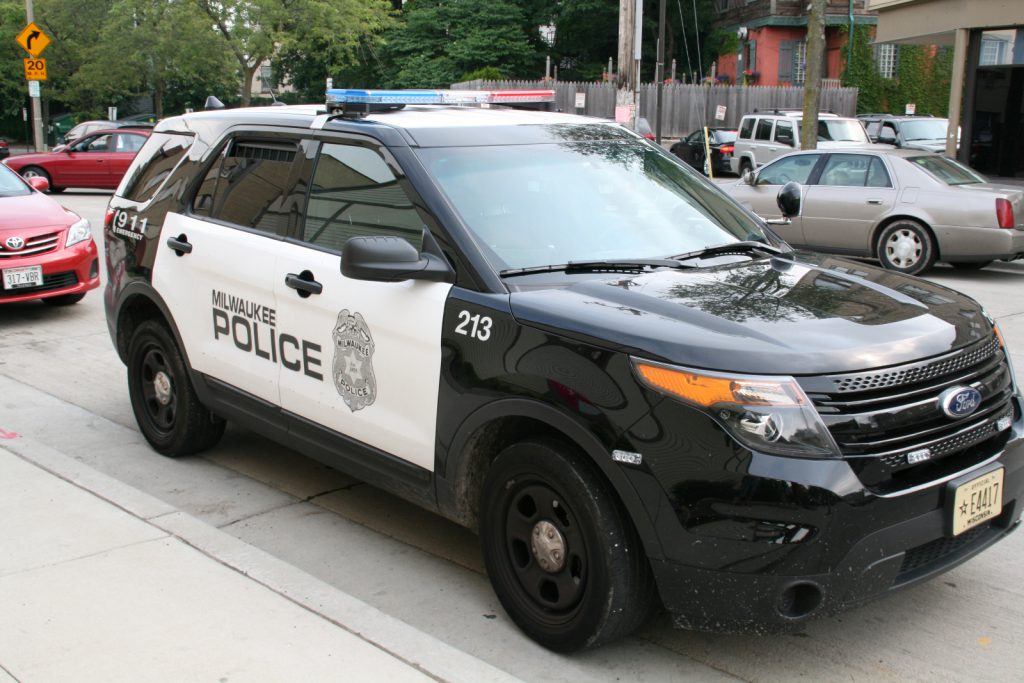75% of Home Drug Searches Target Blacks
90% of Milwaukee County searches in 2019 were in the city. Second in a series.
When police enter Milwaukee County homes without notice or invitation to search for evidence in the war on drugs, they overwhelmingly target low-income and predominantly Black neighborhoods in the city of Milwaukee.
Nine of every 10 drug searches in 2019 were in the city rather than suburbs, and 75% of properties searched were occupied by Black residents, according to a new analysis by Marquette University journalists of every residential drug search in the county that year, the last before the pandemic curtailed many law enforcement activities.
There were 433 drug searches in the county in 2019, or more than one a day. Given their geographic concentration, it’s safe to say that some ZIP codes in Milwaukee’s central city have seen many hundreds, even a thousand drug raids or more since drug enforcement ramped up starting in the 1970s.
More than half of drug searches (222) were in Milwaukee, concentrated in six ZIP codes, five on the north side and 1 on the near south side. They are 53206, 53209, 53212, 53204, 53210, and 53208. Together, they accounted for 51% of the drug searches in Milwaukee County.
Every case was different but details repeated: tips to police, drug buys by frequent informants, surveillance, allegations of violence, evidence fished from garbage outside suspected drug houses. In Riverwest, police targeted a guy with a prior drug record, but came up empty in a search. Near North 5th Street and West Capitol Drive, a search netted 100 grams of cocaine, criminal charges, and a conviction. Some days brought as many as three or four searches; on others, none.
Weapons were frequent companions to drugs, turning up nearly half the time in these searches.
Police more frequently searched Black-occupied properties for weapons (66% to 46%), the Marquette analysis found.
Police and prosecutors in part explain the disparities by saying they focus on drug dealing, not possession, and that drug sales in predominantly Black, lower-income neighborhoods are more public and generate more violence and neighborhood complaints than in wealthier areas.
It’s common for far-suburban drug users to drive into the city or adjacent suburbs to buy and then return home to use.
It’s about economic ability — the fact that somebody who lives in a million-dollar suburban house isn’t going to be dealing drugs out of the house and also can easily get drugs, said William Jessup, a longtime Milwaukee police assistant chief and current chief in suburban South Milwaukee.
“They just have to drive somewhere to get it, or call somebody to have them delivered,” Jessup said.
In the view of police-reform activists, politics plays a role.
Decisions by lawmakers, police and prosecutors to punish some crimes and not others and penalize some drug crimes more heavily than others shows that determining who is a “criminal” is a political decision.
“It’s a decision of who is policed, and who is punished,” said Devin Anderson, who has coordinated the LiberateMKE campaign to reduce the size of the Milwaukee police budget. He is the coalition and membership manager for the African American Roundtable.
Still, in 2019, police in the county conducted 433 drug raids on properties.
Milwaukee police dominated the action, along with special state-federal task forces that go after higher-level narcotics organizations with assistance from MPD and other locals.
But in the two years since 2019, the number of drug search warrants in Milwaukee County fell dramatically, down to 279 in 2021, coinciding with the COVID-19 crisis and the racial reckoning following the killings of Breonna Taylor during a botched police raid in Kentucky and George Floyd during an arrest in Minneapolis.
An MPD spokesperson, Sgt. Efrain Cornejo, said there was no particular reason for the drop, and that police continue to support the effort against drug trafficking.
Economics Lesson
Despite police success in using searches to arrest drug suspects, some with experience in law say America can’t arrest its way out of the drug problem.
The root problem is that drug dealing is still attractive in areas where jobs and opportunities are less available, said David Budde, who worked eight years in the Milwaukee Metropolitan Drug Unit conducting drug investigations.
“It’s about a lack of economic health,” Budde said. “Why do men and women deal drugs? It’s the lure of easy money.”
In the most-searched Milwaukee ZIP code, the average income per-capita was just $13,743.
Gretchen Schuldt writes a blog for Wisconsin Justice Initiative, whose mission is “To improve the quality of justice in Wisconsin by educating the public about legal issues and encouraging civic engagement in and debate about the judicial system and its operation.”
Court Watch
-
No Unemployment Benefits For Worker Making Homophobic Remarks
 May 17th, 2022 by Gretchen Schuldt
May 17th, 2022 by Gretchen Schuldt
-
Appeals Court Upholds Injunction Against Abortion Protester
 Mar 13th, 2022 by Gretchen Schuldt
Mar 13th, 2022 by Gretchen Schuldt
-
80% of State’s Judicial Races Uncontested
 Feb 20th, 2022 by Gretchen Schuldt
Feb 20th, 2022 by Gretchen Schuldt
























